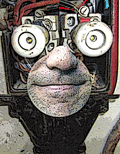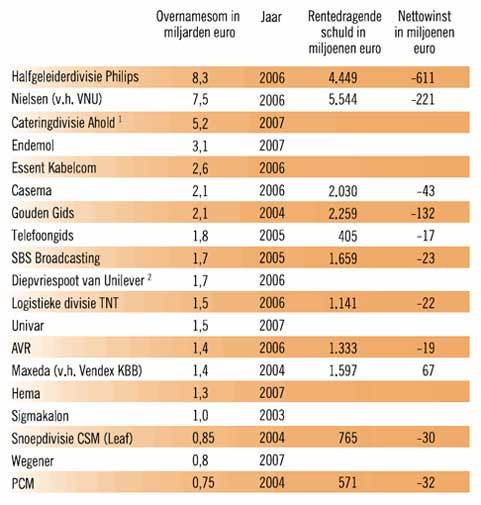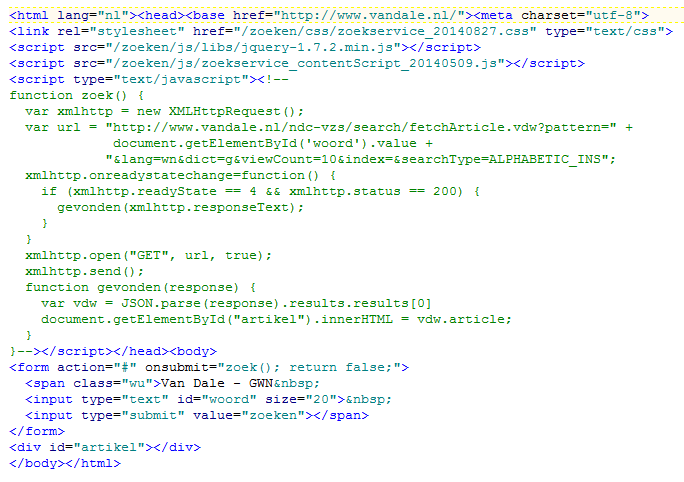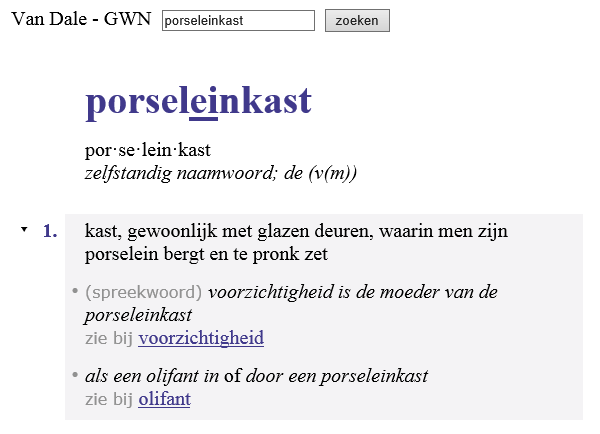JM, hoi. Wat dacht je hiervan:
distributed search
we are decentralizing search using the internets founding principle by distributing index and search to millions of peers keeping load & cost per instance very low [more]
lightweight architecture
1000 times more efficient - less space per document by entropy compression -
less load per search (touches 1 server instead of 1000) - less search time independent from index & query size - less index growth asymptotically over document number
european technology & privacy
your Safe Harbor for search, through privacy by design, because privacy by policy is broken, and master encryption keys, encryption standards, Internet exchange points, transatlantic cables are compromised to spy on industry, governments & public
global neocortex
from search to reasoning - creating answers, not contained in the indexed documents, by combining facts with AI: inductive & deductive reasoning, and predicate logic.
multidimensional index
beyond document centered search - towards a multidimensional space where Users, Conversations,
Annotations, Attention, Topics, Terms and Documents are connected by multidimensional relationships, opening a whole new world of search.
Dan hebben we het over Faroo distributed search. Wikipedia bijdrage:
FAROO
Developer(s) FAROO Limited
Written in C#
Operating system Microsoft Windows
Platform .NET Framework and Mono
Type Web search engine
License Freeware
Website www.faroo.com
FAROO is a universal web search engine based on peer-to-peer technology. It uses a distributed crawler that stores search data on users’ computers instead of a central server. Whenever a user visits a website, it is automatically indexed and distributed to the network. Ranking is done by comparing usage statistics of users, such as web pages visited, amount of time spent on each page, and whether the pages were bookmarked or printed.
Properties
- FAROO takes user behavior into account when calculating a website’s rank, resulting in more relevant search results than traditional search engines can provide (see filter bubble).
- Because pages are automatically indexed upon being visited, updates to the index are nearly instant.
- No central servers are required, drastically reducing infrastructure costs and allowing the service to scale infinitely.
- FAROO plans to share up to 50% of its advertising revenue with its users.
- The index grows with the user base, so a small user base would result in a small index and therefore inaccurate results.
- The nature of the service could allow easy manipulation by spammers, although FAROO claims that their algorithms prevent this.
Aan Faroo wordt dus geschreven in C# en hij, Wolf Garbe, is of ze zijn er al jaren mee in de weer:
Technical Q&A With FAROO Founder
Why .NET?
Wolf: I come from Delphi (Object Pascal). So, the choice of C#/.NET was a dedicated decision for a new platform, not driven by legacy. When I started to work on the first prototype in 2004, Delphi moved towards .NET. I preferred to go with the original, especially because the development of C# was led by Anders Hejlsberg, the designer of Borland’s Turbo Pascal (which Delphi derived from).
Of course, I also looked into Java, which I found quite similar, both from the language perspective (C# vs. Java) and the JIT Runtime environment (Java Virtual Machine vs. .NET Runtime). The decision for C# was based on the dominating desktop market share of Windows and the assumption that embedding the .NET framework into the OS would ensure fast penetration of .NET.
readwrite.com - Web - 5-12-2009
Code krijg je niet:
Q: Why you don’t publish your product as Open Source?
A: The source code is not public for two reasons:
First: Open Source is perfect when competing by a cost advantage with a commercial product on the same technological level (Linux, OpenOffice). But it’s not a good idea to hand over your technological advantage to a monopoly, when competing with its free service with enormous brand power.
Second: We, like others, don’t believe in big development teams if you are aiming radical changes.
www.faroo.com - FAQ
Als bliksemafleider hebben ze onder “Faroo - Open Source” wel een onderdeel gepubliceerd:
Nevertheless, we support the Open Source idea whenever possible: For our 1000x times faster spelling correction we both published the algorithm and released the c# code as Open Source.
Ook bij de Frequently door henzelf aan Faroo Asked Questions:
Q: Why is FAROO’s privacy protection much stronger than just not collecting log files?
A: Some search engines do not log search queries, others delete or anonymize them after a certain time or at users wish. The security gain of these measures is almost virtually only, if the authorities have real-time access to the backend via PRISM or if they can decrypt HTTPS.
By the following measures FAROO can provide superior privacy protection:
No search log
-
This is by architecture, not only by policy.
-
As FAROO has a completely distributed architecture, there does no central instance for monitoring exists. Therefore not collecting search logs is not just a promise, it’s technically infeasible.
Encryption
-
Logging by ISP (connection data retention law) or system admin does not hurt your privacy as all queries are encrypted.
-
Your search queries are immune to blocking or filtering by ISP or system admin as all queries are encrypted.
Hoe veilig en anoniem is dat? Bovengenoemde entrepreneur van Faroo, op dat moment bovenaan het interview nog aangeduid als “an obscure search startup from Germany”:
We have solid insight into the state of our P2P network. We know the number of active and passive peers on any given day (using the log from our update server). The active peer ratio is between 60 and 70%.
Wat wij ervan moeten denken:
P2P SEARCH AS AN ALTERNATIVE TO GOOGLE: RECAPTURING NETWORK VALUE THROUGH DECENTRALIZED SEARCH
Alternatives to Google search
As MacKinnon advocates, the best “counterweight” to corporate power on the internet is a strong digital commons. “A robust digital commons is vital to ensure that the power of citizens on the Internet is not ultimately overcome by the power of corporations and governments”.
Being gatekeepers of information, search engines form an integral part of the digital commons. They are an opportunity to realize the original democratic potential of the internet; a system that allows anyone to share information freely from node to node, without coercion in between nodes. As I will show in section 3.2.2 the greatest way of achieving this via search is to distribute it with a robust P2P network.
From the perspective of fostering a stronger digital commons, the most important components of a search engine are the ones that allocate users greater autonomy in choosing what they search, how they search, and what results they find, free of control from certain technological, government, and corporate constraints (RÖhle, 2009, pp. 129). The five requirements for a digital commons based democratic search engine are that it be free from:
1.Technological filtering induced by PageRank-like algorithms where a Power Law pat tern emerges from vote-based hyperlinking.
2.Government censorship.
3.Excessive global economic censorship by copyright holders.
4.The filter bubble induced by personalization and behavioural advertising (monetary incentives cut across this).
5.Potential breaches of privacy by the storage of vast user logs in central servers.
Journal of Peer Production - Issue #3: The Critical Power of Free Software
Toegepast op “Faroo”:
P2P Search
There are currently three different distributed P2P approaches to web search. FAROO is the largest of the three with more than 2.5 million peers (FAROO, 2008).
Users install the software on their computer. Once active, every time they visit a website it is logged in an index. The index is then used to automatically compile and adjust – in real-time – search rankings across the FAROO network. Because it ranks pages automatically when a user visits a website, it is simple and democratic.
Unfortunately, FAROO is relatively new so there is a lack of in-depth understanding of its inner-workings and their implications. According to their website, FAROO retains no search logs and is immune to censorship because of encrypted search queries and indexes.
However, they also mention that they use “privacy protected behavioural advertising,” which renders it a proprietary software. Advertising in FAROO may not affect search results like it does in Google, but there is still surveillance in the pursuit of monetary gain, capitalizing once again on the wealth of networks, this time the wealth being a composition of its 2.5 million users.
The lack of server costs associated with P2P networks negates the need for advertising revenue beyond what needs to be paid to the developers for coding and upkeep. There is no doubt of the democratic potential and innovative search mechanisms of FAROO, but its inclusion of advertising is a point of contention.
It is important to mention that FAROO’s proprietary P2P network is not considered “free software” like most other platforms based off of P2P networks. Though P2P software and Free Software often display similar attributes, they are not always interchangeable – as is the case with FAROO.
Wikipedia-gebruiker “FatalError” is doende het eruit te halen maar zoals het er nu nog instaat:
Over die afspraak is intussen niets meer te vinden. Wel eventueel over de kosten van het adverteren en over het voorzien in eigen levensonderhoud:
Q: How democratizing the search and making money go together?
Well, we think everybody needs to make some money for living, as long there is no open source housing, food, clothing and transportation ;–)
Isn’t it better to make a living from an idea you believe in, than to waste your time in a boring job and dream in your spare time only?
Open source housing … Hoe bij de introductie tegen het nieuwe project aangekeken werd:
The game-changing FAROO advantage is not that it is free software, it is their Peer To Peer (P2P) architecture. This can totally change the economics of search. To quote FAROO’s front page, “Copy the entire Internet to one system? Strange idea. That’s what search engines try to do. Therefore they require 450,000 servers and $2 billion.”
Men gelooft wel in “open source datacenters”. Alleen, wie dragen daar de kosten van? Immers, ‘Urban myth’, de befaamde uitspraak dat je van de benodigde elektriciteit voor een of twee zoekopdrachten bij Google ook thee had kunnen zetten.
Die van het eveneens gedecentraliseerde schijfopslagsysteem uit de vorige posting, Storj, die dacht tenminste nog mee met zijn aspirant-zzp-toeleveranciers:
How much will I make from DriveShare?
Let’s start with your costs for a month. You probably already have a PC with a hard drive in it. If you’re reading this, you probably have an internet connection. So those costs are already sunk. However, you’ll want to leave your computer on for Storj, so you’ll have some electricity costs. And you may want to buy another hard drive or two, so that’ll cost you some money.
Electricity is pretty simple. You use your computer normally, and leave it on the rest of the day for Storj. If you use 2 hours a day, Storj has to pay for the other 22 hours. A computer usually uses about 50 watts when idle. Storj will use a bit of processor time, and spin your hard drive, so lets bump that up to 75W. Run for a month, 22 hours a day, that’s 49.5 kWh. Power rates vary by location, but the US average is about $0.12/kWh. So a US user would pay only $5.94 to run their Storj node for a month. That’s only $0.20 per day.
But hard drives also use electricity, so we have to account for that as well. A typical hard drive will draw around 20W. Over the course of a month at 22 hours/day, that’s 13.2kWh, which costs $1.58. So the full cost of each additional hard drive is $3.80/month for 2TB, or $6.02/month for 4TB. So it follows that if you’re charging above $6.02 / 4000 ≈ $0.0015/GB/Month, you should consider adding a new hard drive.
blog.storj.io
Dus ik moet mijn machine met Faroo erop maar aansluiten op de gemeenschappelijke trapverlichting in mijn appartementencomplex?
Bij spoed: 112, Geen spoed: 0900-8844, Politie - Home - Nieuws:
IIlegale stroom leidt naar Bitcoinfabriek
Laatste update: 02-04-2014 | 11:06
Woordvoering: Zeeland-West-Brabant - mediadesk Oost
Goirle - Een 43 jarige Tilburger is dinsdagmiddag aangehouden bij een bedrijfspand aan de Nobelstraat. Hij wordt ervan verdacht illegaal stroom afgetapt te hebben voor de productie van Bitcoins, een vorm van elektronisch geld.
Elektronisch geld
Dinsdag 1 april rond 11:15 uur hielden handhavers van de gemeente, controleurs van Enexis en politieagenten een controle bij een bedrijfspand aan de Nobelstraat. Ze constateerden dat er illegaal stroom werd afgenomen. Tevens stonden in het pand 21 computers aan. Het bleek om een Bitcoinproductiebedrijf te gaan. Bitcoin is een vorm van elektronisch geld.
In beslag
De 43-jarige eigenaar werd aangehouden door de agenten en meegenomen naar het cellencomplex. Tevens zijn de computers, overige apparatuur en de auto van de Tilburger in beslag genomen door de politie. De digitale recherche doet onderzoek. Het Openbaar Ministerie verdenkt de man van diefstal stroom en witwassen.
Finale, hoe goed is deze zoekmachine, vindt Faroo dit bericht ook? Geen probleem.
In dat geval, er is een menu-optie om het ding in te stellen als ‘default search provider’.
En ze hebben een API, zeg maar een dienstingang zodat een PC zelf iets voor zijn baasje kan opzoeken. Alleen moet die zich eerst voor een vrij beschikbaar te stellen API key laten registreren.
![]() Met 1 druk op de knop een project in “amalgamation vorm” kunnen omzetten lijkt mij mooi.
Met 1 druk op de knop een project in “amalgamation vorm” kunnen omzetten lijkt mij mooi.








